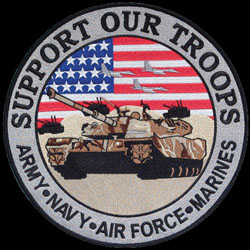 Exclusive Interview by Geno McGahee
Exclusive Interview by Geno McGahee
(Interview conducted in 2007)
“If Richard Donner had been able to finish Superman II his way, it would have been an incredible film.”—Jack O’Halloran
In 1974, the boxing career of Jack O’Halloran, and the movie career began. In 1975, he played a lead role in the movie “Farewell My Lovely” alongside the established actor, Robert Mitchum. O’Halloran had re-invented himself and found a new and promising career as an actor. His next memorable film was the 1976 blockbuster, “King Kong,” and two years later, he would land the role that most people associate him with. The comic book superhero “Superman” hit the big screen, and the world was introduced to three super villains. “Non” was the strong and silent of the three, never uttering a word, but still is considered by most Superman fans as one of the best villains in the franchise.
In 1980, in Superman II, the evil trio would steal the show and Jack O’Halloran would discover what became his signature role. Only now in 2006, does it come out that there were two versions of this film, and that the original director, Richard Donner had never finished his vision of what the movie could be. Director, Richard Lester ran with the project, and apparently, this made absolutely nobody happy. O’Halloran, despite his dislike for the change went on to make the role memorable and was etching out and very decent second career as an actor.
The action-packed “The Hero and the Terror,” came out in 1988, starring Chuck Norris as the good cop (The Hero), and O’Halloran as “Simon Moon,” a deranged serial killer that has escaped a mental asylum (The Terror). This is arguably the best movie that Norris has ever starred in and it was another role for Jack where he didn’t say a word. The fight scenes were exciting and this was really one of the last great action films of that era. Although not a blockbuster at the cinemas, it made more than its mark with video rentals. This movie and the Superman entries were great movies that most people that were children at that time remember vividly. With the release of the Donner cut of Superman II, the clock is turned back, the movie is fresh, and people my age can relive the magic of the film, while others are introduced to a new perspective of the movie and the characters that made it so special.
There were other movies for Jack, but it seemed that his days in the movies had passed. Just as he had shown in his boxing career, he could never be counted out as he re-invented himself once again as a movie producer. The movie that he produced: “The List” features Wayne Brady and Sydney Tamiia Poitier, the daughter of the legendary actor, Sydney Poitier in a comedy/romantic film. This was the first, but will not be the last movie produced by O’Halloran, and as mentioned in part one, he has authored a book concerning his father and the criminal activity that became such a part of his life, titled: “Dark Legacy.” I was allowed to read it and it is a fantastic book, and I highly recommend it.
In Part II of this interview, we speak more of the upcoming hopeful best seller, his movie career, and his thoughts on Richard Lester, Richard Donner, and the Superman Franchise.
GM: When you sat back and witnessed the comeback of George Foreman, was there every an urge to comeback or was it medically impossible for you to return?
Well, I thought about it a couple of times, but you know, I was doing films. We had just done the Superman movies, and I had a serious back surgery in 1980, but I still got back into good shape again and I went down to San Diego and saw my trainer and was going to give it another shot…but I had a pretty good film career, and even that I didn’t do correctly, but now I’m back doing it big time. I also have an amazing book coming out. The only reason that I am telling you about my father is because it is going to be read about in this book and the book is going to be huge!
GM: I look forward to reading it. What is the name of the book?
It’s called “Dark Legacy” and it presents quite an interesting story.
GM: When will it be released to the public?
The publishing deal will be done probably in the next ten days, and then it will come out for a summertime read, I believe. The book gives a lot of insight to who I am and what I am, and why I played this game of hide and seek in the boxing world. The book is brilliant. The book is going to be bigger than the Godfather. It’s a great story and the book turned out very, very, well. That is why I’m here in California. We have a film that we are putting together and we are just waiting for certain things to finish up, and once the publishing deal is done, everything else will fly like a domino effect. You’re doing this story at the right time because the publicity is going to be astronomical.
GM: Now, your movie career is quite impressive. I remember as a kid going to see the Superman movies and then when I was a little older, seeing The Hero and the Terror with you facing off against Chuck Norris. You have made quite the impression, especially on people from my generation. Can you talk about your movie career?
My first movie was “Farewell My Lovely” with Robert Mitchum.
GM: Were you intimidated by Robert Mitchum, considering the fact that he was an established and respected actor, and you were a boxer coming into a new field?
Oh no. Mitchum and I became best of friends. He was like a father to me. He knew a lot about me because he knew people on the east coast. If I had been in the film business and had played the game like they do out here, I would have won an Oscar for supporting actor for that picture.
GM: To be honest, I have not seen that film, but I will have to check it out.
You have to see the movie. It’s a very good movie. You know, it is a very good film, and I play a lead character. It was my first movie and there I was doing a lead role beside Robert Mitchum. It was kind of cool. That’s the reason that I did it. When they came to me to get into the film business back in the 1960s, I was friends with Steve McQueen when he did the Thomas Crown Affair in Boston, and he said: “Ah man, you gotta come down and we’ll put you in the movie. Come on back to Hollywood with me,” and I said, yeah…yeah, and he kept calling me and he did a picture called “The Towering Inferno,” and his name was Captain O’Hallorhan. He said: “How do you like your name up in lights?” We went round and round and it was good. We had a good time. There were good people, and he became a good friend, but I just kept on saying no.
When I knocked out Manuel Ramos in 68, they offered me the movie, “The Great White Hope,” to play Jess Willard and I turned them down. The guy couldn’t believe that I turned it down. The guy was a joke. I went to FOX and they said we are going to pay you so much per week and you will go to Spain for six months and I said, you want me to leave the country and leave boxing, and I just knocked out the number one or number two ranked guy in the world and you want me to leave boxing to go to Spain and do a movie? You are going to pay me what? I give that away in tips a week. What are you crazy? And I also had a lot of street business. I said, you want me to walk away from my life to go to Spain? It was a deal that was put together by some friends of mine that were trying to get me off of the streets, and I just wouldn’t listen. I was hard-headed. I should have done it, actually. It was kind of foolish of me.
GM: In Superman, I had heard that it was your idea to make your character “Non” a mute. Is that true, and why did you want to have a non-speaking role if it is?
Well, they were talking about how to do the character. He was a mute in the first writing of it, I believe, and then they were talking, and when I was talking to Richard Donner, they didn’t think that I would do a mute.
There was a film that I had really loved called “Gigot” with Jackie Gleason, and he won an Oscar for it. He played a mute, and I thought that it was a brilliant way for an actor to express himself, and to do everything through facial expressions. So I said that I want to play Non as a mute. I liked it. It was a great challenge for me. I think that it was a brilliant idea. They said: “Seriously, you’ll do that?” I said positively.
GM: The Richard Donner cut was recently released. It seems like a much sharper, smarter, and more adult oriented version of Superman II. Why wasn’t the Donner cut completed from your perspective?
You know, it was a really lousy thing that they did. Richard Donner is a great director, and the people running the show were notorious…they were notorious for things that they did as far as ripping people off. They had a deal with Richard Lester. Lester had done a film with the Beatles, and they owed him a movie. So, they knew that they were going to do what they did, because they didn’t bring Donner back. Not only did they not bring Donner back, but they didn’t bring Marlon Brando back. How do you not pay Brando to do Superman II?
You see, people don’t look at that. They think that they fired Donner over some wrong doing, but that’s all bullshit. Donner knew that, before we were finished, that there was a problem because Lester showed up on the set. I had heard the scuttle bug, and I said this is really bullshit that they are doing this to him because Donner is a great director and he gave a lot to the film. If Richard Donner had been able to finish Superman II his way, it would have been an incredible film.
When they came out with the Donner cut, they had to paste things together. When we were doing the films, we had shot one and two together, and they had to stop. We were so much into doing Superman II, we had to go back and finish the first one, because they had a delivery date. They had to deliver the film. That’s why so much of the second one was shot. But they did that purposely. They wanted the footage. Richard Lester is no Donner…please believe me, and Lester’s version of Superman II with all that comedy and crap he put into it was so ludicrous, especially opposed to what Donner was going to do, and people say: “Well, it’s not fair because Lester didn’t shoot the whole film,” but look what he did with Superman III! It was a joke!
They had made a deal with Lester. If they weren’t such clippers, they could have done the deal with Donner, and let him finish, and then gave Lester Superman III. They had no intentions of bringing Brando back either. They use one excuse to cover up another. It was a lousy thing to do. Like I said, Donner really gave his heart and soul, and we all thought that we were going to do like seven Superman movies, like Star Wars have done. Everyone was under that impression, and Donner would have done like four of them. Donner, had he done three, it would have been such a better film.
GM: I can’t see it getting much worse. Superman III and Superman IV were just horrible.
Well, the fourth one was just diabolical. What they did with four was to sell the rights to one film to Canon films. Canon was a sleazy outfit and the reason they allowed it was that they had allowed Christopher Reeve to write the script, and it was a horrible idea.
GM: I don’t think that there could be a worse Super Villain than Solar Man, or whatever it is they called him in the fourth entry.
Why would you take a great subject matter like that and piss on it like that? First, they are not Americans and they didn’t care. Superman is an American deal, and that is why Donner got into it so much. And they made a lot of money off of Superman, the first one, so they certainly had the money to hire Donner or anybody, and to bring Brando back. One of the things that is great about the Donner cut is it’s got all of that Brando footage in it.
GM: In the Donner cut, I really enjoyed how Superman was questioning his father, which you never saw in the Lester cut or anywhere else.
It’s a father-son deal. It was never supposed to be a mother-son deal. It was a father-son deal for God’s sake. So the entire premise of what they did was that they screwed up the entire deal and it’s really, really, really sad. It really made a lot of people angry, and I went back and finished two because that is what you do as a professional. You do what you are paid to do, and you do your job, and you do it the best that you can.
I didn’t get along with Lester. I didn’t like Lester. I didn’t think that he was a good director. Nobody did.
GM: I think that it is obvious now when you compare the Donner cut versus the Lester cut. There is no comparison.
They way to do it is to look at Superman II, Lester’s cut, and then look at the Donner cut right after it, and then you will really see the difference. I can imagine that if Donner had the chance, to do the shots that he wanted to shoot, and to really do that movie the way that he wanted to, it would have been awesome. It would have been awesome, and it would have left the door open for three, but it is such stupid shit that they do. It is really sad. It is so, so, sad.
GM: What do you think of the new Superman movie: Superman Returns, that came out in 2006?
You know, I thought that the kid (Brandon Routh) got away with it, but I think that Bryan Singer is too much of a CGI guy. I think that they ruined and wasted a lot of very good talent. It is very difficult to replace Gene Hackman, but the kid ended up doing a good job as Superman.
GM: I have actually always thought that Gene Hackman, being such a great dramatic actor, was wasted, especially in the fourth entry because they made him so absurd and silly, when he could have nailed the role as a serious villain.
Not only that…but he didn’t finish two. He got mad and he never came back. They had contract problems with him, and they wouldn’t pay him what he wanted. He just didn’t come back. They had to shoot a lot of his stuff with a double from behind. That didn’t help. So, a lot of things that Lester created were really piss poor, but now they do this new film, and they change the costume, which I thought was a bad idea. There was too much CGI. You had great actors in Kevin Spacey and Frank Langella, who didn’t have enough screen time.
There wasn’t enough screen time for Clark Kent as Clark Kent. The kid should have been Kent a lot more, and the storyline sucked.
Read: George Foreman, Muhammad Ali, Ken Norton, Boxing & More – Jack O’Halloran Chats Part I

 February 9th, 2014
February 9th, 2014  CEO
CEO  Posted in
Posted in  Tags:
Tags: 



